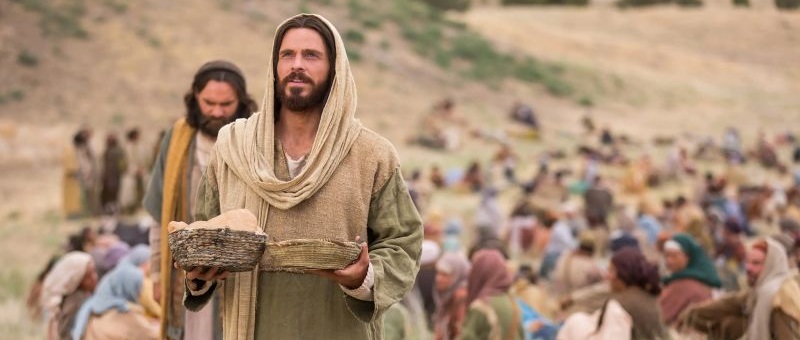The Plane of Abundance vs. the Plane of Scarcity
Many writers and thinkers have explored the idea that as we go through life, we can operate on one of two modes or paradigms, or “planes”:
- The plane of scarcity, also called the competitive plane. When we operate on this plane, we believe that resources are finite and limited. Our gain is someone else’s loss, and vice versa. A bigger piece of the pie for us means a smaller piece for someone else.
- The plane of abundance, also called the creative plane. When we operate on this plane, we believe that resources are infinite (or, at least, abundant), and that there is enough and to spare for everyone. Our gain is someone else’s gain. We can grow the pie to make the pieces bigger for everyone.
I believe that God wants us to live on the plane of abundance. He certainly lives on the plane of abundance: He creates galaxies and universes!
So how do we get onto that plane? How do we unlock the abundant powers of heaven? What activities lend themselves to an abundance mentality? As I read the story of Jesus feeding the 5,000 this week, I found seven keys.
Feeding the 5,000
Here is John 6:1–12, from the English Standard Version (ESV):
After this Jesus went away to the other side of the Sea of Galilee. . . . 2 And a large crowd was following him, because they saw the signs that he was doing on the sick. 3 Jesus went up on the mountain, and there he sat down with his disciples. . . .
5 Lifting up his eyes, then, and seeing that a large crowd was coming toward him, Jesus said to Philip, “Where are we to buy bread, so that these people may eat?” 6 He said this to test him, for he himself knew what he would do.
7 Philip answered him, “Two hundred denarii worth of bread would not be enough for each of them to get a little.”
8 One of his disciples, Andrew, Simon Peter’s brother, said to him, 9 “There is a boy here who has five barley loaves and two fish, but what are they for so many?”
10 Jesus said, “Have the people sit down.” Now there was much grass in the place. So the men sat down, about five thousand in number.
11 Jesus then took the loaves, and when he had given thanks, he distributed them to those who were seated. So also the fish, as much as they wanted. 12 And when they had eaten their fill, he told his disciples, “Gather up the leftover fragments, that nothing may be lost.” 13 So they gathered them up and filled twelve baskets with fragments from the five barley loaves left by those who had eaten.
Philip and Andrew: Living on the Plane of Scarcity
Let’s look at Philip’s statement:
“Two hundred denarii worth [around $8,000–$12,000 today] of bread would not be enough for each of them to get a little.”
And at Andrew’s:
“There is a boy here who has five barley loaves and two fish, but what are they for so many?”
Philip and Andrew are operating on the plane of scarcity. What do we learn about it?
A scarcity mindset is not a pessimistic mindset; it’s a practical mindset. Philip and Andrew are simply observing the facts and doing the math: There’s X number of people, we have Y resources, and Y is not enough to meet X.
We usually default to a scarcity mindset. After all, it’s the one that makes mathematical and logical sense.
A scarcity mindset is usually problem-focused. Or if it is solution-focused, the solution is grounded in the resources available and is usually un-ideal. (In the parallel account in Matthew, the disciples tell Jesus to dismiss the multitude so they can buy food in the surrounding towns—which would have denied them the opportunity to hear Jesus and possibly could have caused a regional logistical crisis.)
So what can we learn from Jesus’s actions about the plane of abundance?
Key 1: Abundance Includes Identifying Problems and Focusing on Solutions
Lifting up his eyes, then, and seeing that a large crowd was coming toward him, Jesus said to Philip, “Where are we to buy bread, so that these people may eat?”
Jesus isn’t blind or naïve. He readily acknowledges the problem (indeed, sooner than his disciples). But unlike his disciples, who dwell on the problem, Jesus immediately turns to thinking of solutions.
Living in abundance doesn’t mean ignoring, dismissing, or downplaying the problems in our lives. But it does mean approaching those problems from a position of faith and action, rather than a position of discouragement and consignment.
Key 2: Consecration and Generosity Unlock the Miracle of Abundance
“There is a boy here who has five barley loaves and two fish.”
The boy in this story was, like Jesus, living on the plane of abundance. He wasn’t doing the math. He wasn’t hoarding his own resources so that he and his family had enough. He willingly gave what he had to Jesus, for the benefit of total strangers.
In the Book of Mormon, Jacob admonishes us to “be familiar with all, and free with your substance, that they may be rich like unto you” (Jacob 2:17). I believe what he means by “familiar” is to treat everyone around us as family, and to gladly share our resources accordingly.
By the way, I don’t think it was a coincidence that this was a boy, not a grown adult. Adulthood has a way of engraining the scarcity mindset into us.
Key 3: Abundance Includes Being Organized
Jesus said, “Have the people sit down.” Now there was much grass in the place. So the men sat down, about five thousand in number.
King Benjamin taught, specifically in the context of imparting our substance to the poor, that we should “see that all these things are done in wisdom and order. . . . All things must be done in order” (Mosiah 4:27). Why did Jesus take this step of organizing and seating the people? We don’t know, but it probably made it easier for the disciples to distribute bread and fish to the whole multitude, to make sure no one got missed, and to get a rough count of their numbers. It probably also allowed for more reverence and reflection among the multitude.
If God can bless me with abundant resources, then why do I need to keep a budget, track my income and expenditures, and count my food storage? Because order unlocks abundance.
Key 4: Gratitude Unlocks Abundance
Jesus then took the loaves, and when he had given thanks, he distributed them to those who were seated.
Gratitude! So much has been said and written about its incredible power. I’ll mention here that gratitude is a key component of fully “receiving” a gift from Heavenly Father (or anyone else). And, as Jesus taught, “whosoever receiveth, to him shall be given, and he shall have more abundance” (Matthew 13:12, Joseph Smith Translation).
Key 5: Abundance Satisfies Wants, Not Just Meets Needs
So [Jesus distributed] also the fish, as much as they wanted.
We are often counseled to differentiate between our needs and our wants, and to prioritize our needs and only pursue wants if we can afford them. I think we sometimes internalize this counsel to mean that God will only bless us with our needs, and that it is a sin to ask for or pursue the wants in our lives.
Not true! God wants to bless us with our wants! He wants us to live in abundance, like He does!
For another witness of this principle, let’s go back to King Benjamin’s speech: “I would that ye should impart of your substance to the poor, . . . such as feeding the hungry [need], clothing the naked [need], visiting the sick and administering to their relief [need], both spiritually and temporally, according to their wants” (Mosiah 4:26).
Key 6: Abundance Does Not Mean Extravagance or Waste
And when they had eaten their fill, he told his disciples, “Gather up the leftover fragments, that nothing may be lost.” 13 So they gathered them up and filled twelve baskets with fragments from the five barley loaves left by those who had eaten.
In both ancient and modern days, one tendency of the super-rich has been to flaunt their wealth: to be deliberately wasteful, just to show that they can afford it. This is not the way of God. Jesus had just demonstrated that he could make food appear from nowhere. He didn’t need leftovers! But he taught his disciples that abundance requires wise stewardship, and that waste and excess are not the way of heaven.
Key 7: We Must Prioritize Heaven over Earth
With all this talk of abundance, of blessings, of meeting our wants, there is a great danger: That we will lose sight of the treasures in heaven and set our hearts upon the cares of this world.
So it was for those blessed by this miraculous feeding. John recounts how, afterward, they followed Jesus to Capernaum, hoping for more free food. But Jesus taught them the importance of heaven-centric priorities:
27 Do not work for the food that perishes, but for the food that endures to eternal life, which the Son of Man will give to you. . . .
35 . . . I am the bread of life; whoever comes to me shall not hunger, and whoever believes in me shall never thirst.
True abundance, and the only abundance that matters eternally, is spiritual abundance. It is to abound with a love of God and of all men, to be full of the Spirit, and to treasure up for ourselves riches in heaven through good works here on earth.
Can we have both abundance in heaven and abundance on earth? Certainly! But we must seek them in that order, and with the right intent. As Jacob counseled in Jacob 2:
17 Think of your brethren like unto yourselves, and be familiar with all and free with your substance, that they may be rich like unto you.
18 But before ye seek for riches, seek ye for the kingdom of God.
19 And after ye have obtained a hope in Christ ye shall obtain riches, if ye seek them; and ye will seek them for the intent to do good—to clothe the naked, and to feed the hungry, and to liberate the captive, and administer relief to the sick and the afflicted.
What can I say more?
Summary
From John’s account of the miracle of feeding the 5,000, we learn seven keys to unlocking an abundant mindset and lifestyle:
- Focus on solutions, not problems
- Live the laws of generosity and consecration
- Do all things with order
- Live in gratitude
- Give yourself permission to seek wants as well as needs
- Avoid waste and excess
- Prioritize spiritual abundance over temporal abundance
Questions to Ponder
- How can I be a better steward over the resources I already have?
- What are some wants that I have been too hesitant to ask God to bless me with?
- What blessings can I express gratitude for today?
Banner credit: “Jesus Feeds the 5,000,” Media Library, churchofjesuschrist.org. Used according to Church guidelines for media use.



Thank you, Jeremy, for articulating so many wonderful lessons from this simple Bible story! You show how Jesus is an amazing example of faith, gratitude, organization, and generosity. He feeds us abundantly in a physical sense; He feeds us abundantly in a spiritual sense. He says to ask in faith and we shall receive, and when we meet those criteria, He always delivers.
Yes! I keep coming back to that scripture, “ask and ye shall receive,” as well as the scripture, “whosoever receiveth, to him shall be given, and he shall have more abundance.”
I loved reading about practical life lessons you learned from that amazing miracle, and how you described the most important abundance of all; spiritual abundance. I have a little abundance story of my own, which I will share with you in the next couple of weeks. Thank you for your insights.
Thanks! Looking forward to hearing it!